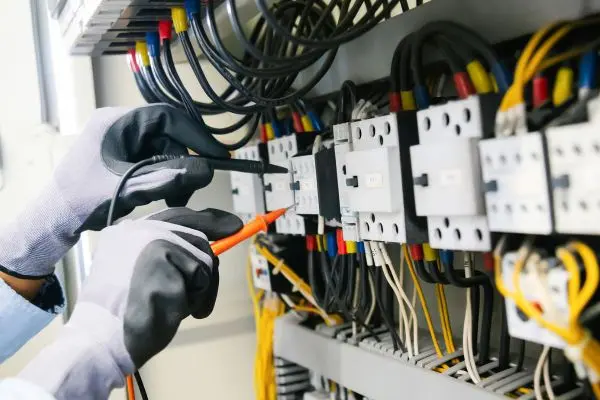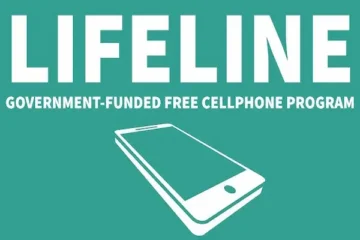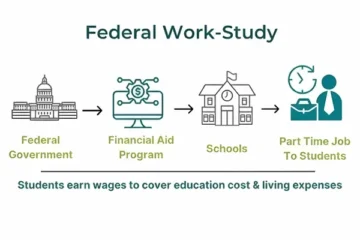Best online courses for electrical engineering: Top 5 for free!
Explore the best online courses for electrical engineering to enhance your skills and advance your career!
Advertising

How to apply for free
See how to apply for electrical engineer online courses.
HOW TO APPLYYou will remain in the same website
Comprehensive lessons, hands-on projects, and flexible learning.
Ready to level up your electrical engineering skills?
Keep reading to discover the top courses available for free!
Top 5 Best Free Online Courses for Electrical Engineering
Electrical engineering is one of the most dynamic and high-demand fields today.
With the right foundational knowledge, you can start building circuits, working with power systems, diving into electronics, and even exploring smart energy technologies.
Thanks to online education, you don’t need to enroll in a costly degree program to get started.
Below are the five best online courses for electrical engineering that you can take for free and learn from top universities and expert instructors.
1. Electrical Engineering Fundamentals by Coursera (Offered by University of Colorado Boulder)
This course is a must for beginners who want a clear introduction to how electrical systems work.
You will learn essential concepts like voltage, current, resistance, energy conversion, and circuit analysis.
The course content is structured to help you understand how electricity flows and how different electrical components interact.
It features video lectures, short readings, hands-on practice problems, and discussion boards.
Auditing the course is free, with the option to purchase a certificate.
Perfect for:
- Beginners looking to build a foundation
- High school graduates
- Students planning to pursue engineering
2. Introduction to Electronics by Coursera (Offered by Georgia Institute of Technology)
This course, taught by Professor Bonnie Ferri, offers an engaging and accessible introduction to electronic components.
You’ll explore the functions of diodes, transistors, and operational amplifiers, along with circuit analysis techniques.
One of the highlights is the visual clarity and pacing of the video content, which makes complex subjects easier to grasp.
You can expect to work through interactive quizzes and design circuits by the end of the course.
You don’t need prior experience to enroll.
The course is great preparation for more advanced electronics studies.
3. Power Systems Analysis by edX (Offered by Delft University of Technology)
Looking to understand how electricity is generated, transmitted, and distributed?
This course focuses on large-scale electrical infrastructure and power grids.
You’ll learn about system behavior under different loading conditions, fault analysis, and system stability.
The course includes both theoretical and practical components.
The content is ideal for those planning to work in energy, utilities, or power engineering.
While you can audit the course for free, edX offers a certificate upgrade if you want official recognition.
This is a more technical course and may require prior understanding of circuit theory.
4. Circuits and Electronics by edX (Offered by MIT)
This course is a challenging, university-level introduction to electrical engineering.
It’s based on MIT’s on-campus course and is taught by experienced faculty.
Topics include linear and nonlinear circuits, semiconductor devices, operational amplifiers, and digital abstraction.
You’ll also get to work with circuit simulation tools like LTSpice.
This is a great choice if you want a deep dive into circuits with both theory and problem-solving.
While the course is free to audit, students can purchase a certificate for a small fee.
Recommended for:
- University students
- Engineering interns
- Tech professionals
5. Introduction to Electrical Engineering by Alison
Alison is a free learning platform that offers accessible and flexible course formats.
This course provides a practical overview of electrical systems, covering basic safety, wiring diagrams, tools, voltage levels, and more.
It is particularly useful for technicians, tradespeople, and hobbyists who want a quick and easy introduction.
The platform allows free learning with optional certificates supported by ads.
Courses can be completed in under 10 hours.
It’s an excellent entry point before progressing to more detailed academic content.
Why Choose Free Online Courses for Electrical Engineering?
If you’re wondering why you should consider free online courses instead of paying for a full university degree or bootcamp, here are some powerful reasons:
1. Accessibility
Anyone with internet access can sign up and start learning immediately.
No need for student loans, travel, or long admissions processes.
2. Flexibility
These courses are designed for self-paced learning, which is ideal for students, full-time workers, parents, and career switchers.
You control your pace and schedule.
3. Practical Application
Many of the best online courses for electrical engineering include simulations, downloadable tools, and real-world case studies.
You don’t just read — you practice, design, build, and analyze.
4. Credential Options
While free to audit, many platforms allow you to earn certificates that you can add to your resume or LinkedIn profile.
These certificates can give you a competitive edge in job applications or interviews.
5. No Risk
Since the courses are free, there’s no financial risk involved.
If you decide a particular course isn’t the right fit, you can simply unenroll and try another one.
Common Questions About Free Online Electrical Engineering Courses
Below are answers to the most frequently asked questions from learners just like you:
1. Are these courses really free?
Yes, the courses mentioned are all available to audit for free.
You only pay if you want a verified certificate or additional services like graded assignments.
You can fully complete the course and learn all the content without paying a cent.
2. Can I take these courses at my own pace?
Absolutely.
Most courses are self-paced, meaning you can start anytime and move through the material as slowly or as quickly as you want.
Even time-bound courses often allow you to reset deadlines.
3. Do I need any prior experience in electrical engineering?
Not necessarily.
Some courses like those from Alison or the Georgia Tech offering on Coursera require no prior knowledge.
However, courses from MIT or Delft may require you to be familiar with basic math, physics, or circuit theory.
If you’re unsure, start with the easiest course first.
4. Will I receive a certificate after completing the course?
Yes, but usually only if you choose the paid certificate option.
In some cases, platforms like Alison provide certificates for free (with ads) or for a small one-time fee.
These certificates are great for showcasing your skills to employers or clients.
Which Is the Best Free Online Electrical Engineering Course?
The best course for you depends on your background and goals.
Here’s a breakdown to help you decide:
- Absolute Beginner: Start with Alison’s Introduction or Coursera’s “Introduction to Electronics”
- University-Level Theory: Choose MIT’s “Circuits and Electronics”
- Career in Power Systems: Opt for Delft’s “Power Systems Analysis”
- Practical Technician Skills: Alison or Coursera’s foundational courses
If you’re preparing for an engineering degree, use these courses as a supplement to formal education.
If you’re already working and want to expand your skill set, go for the ones with practical and advanced content.
What Will You Learn in These Courses?
Each course covers a range of topics that will help you:
- Understand electric current, resistance, and voltage
- Analyze AC/DC circuits
- Apply Ohm’s and Kirchhoff’s laws
- Learn to use diodes, transistors, and amplifiers
- Model electrical systems in simulation software
- Identify safety procedures when working with electricity
- Explore energy generation and grid systems
Some advanced courses also dive into:
- Renewable energy
- Smart grid infrastructure
- Digital signal processing
- Microcontroller programming (e.g., Arduino)
Bonus Platforms to Explore
In addition to the top 5, here are a few more platforms worth checking:
- Udemy: Often has free and paid beginner courses
- Khan Academy: Great for learning math and physics foundations
- OpenLearn: Offers short courses from the UK’s Open University
- NPTEL: Indian platform offering engineering content from IITs
- YouTube: Channels like All About Circuits, GreatScott!, and ElectroBOOM for tutorials and demos
Tools and Software You Might Use
Many electrical engineering courses recommend or use these tools:
- LTSpice (Circuit simulation)
- TinkerCAD Circuits (Beginner-friendly online circuit builder)
- MATLAB/Simulink (Advanced modeling and control systems)
- Multisim (For complex circuit simulation and analysis)
Most of these tools offer free academic versions or trial periods.
Some courses teach you how to use them; others require prior familiarity.
Career Paths After Learning Electrical Engineering
Completing even a few online courses can open doors to different fields, such as:
- Electrical maintenance
- Circuit design
- Automation and robotics
- Renewable energy and solar tech
- Building systems and smart homes
- Embedded systems
Use your new skills to:
- Apply for entry-level technician roles
- Build freelance projects
- Pursue formal education
- Boost your current role with technical knowledge
Sign Up Today!
Now that you know the best online courses for electrical engineering, it’s time to take action.
Choose a course that fits your level, commit to a learning schedule, and start building a new skill set today.
There’s no reason to wait — your future in engineering begins with a single click.
Explore the world of circuits, systems, and innovations.
Take advantage of these free resources and spark your path to success!





